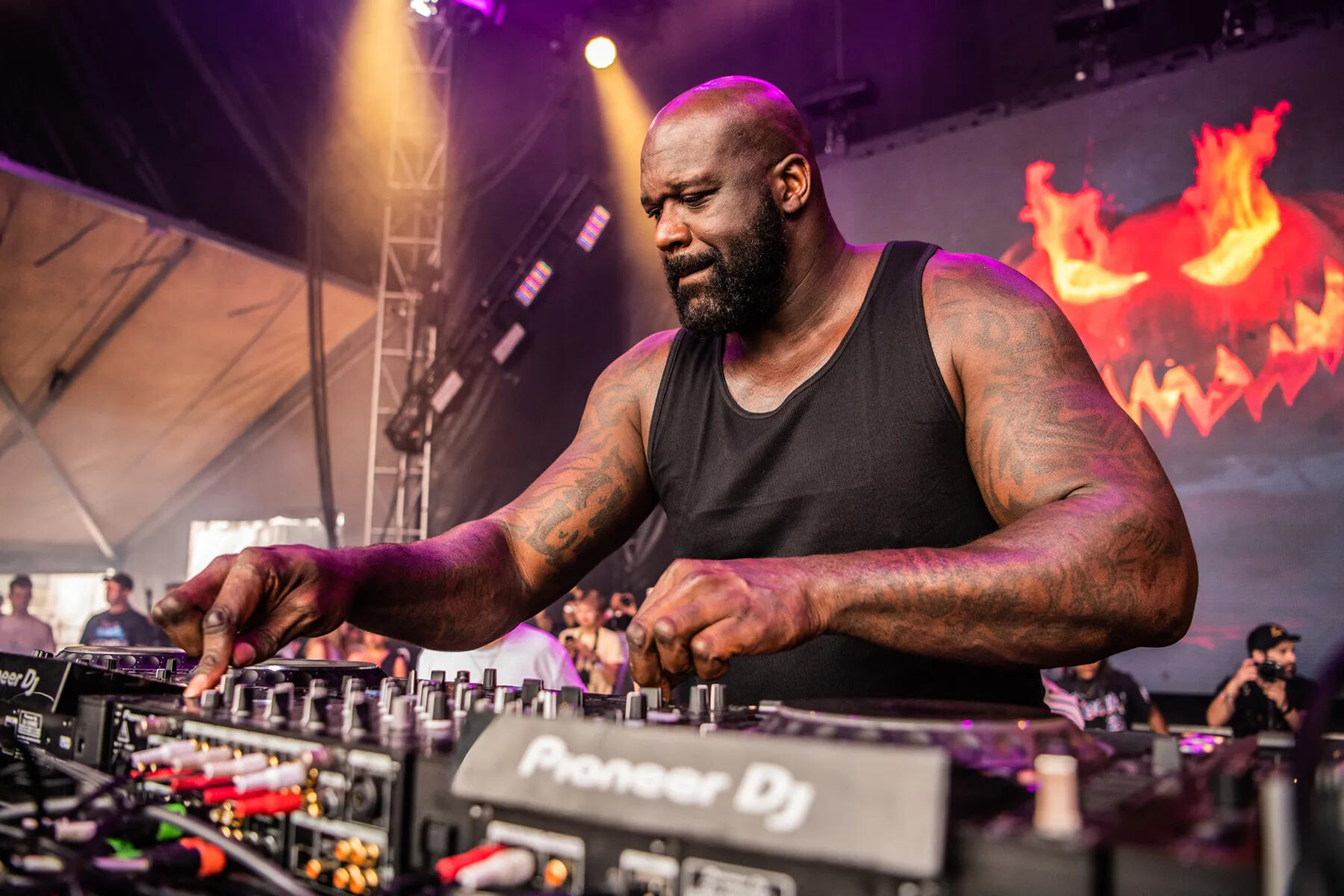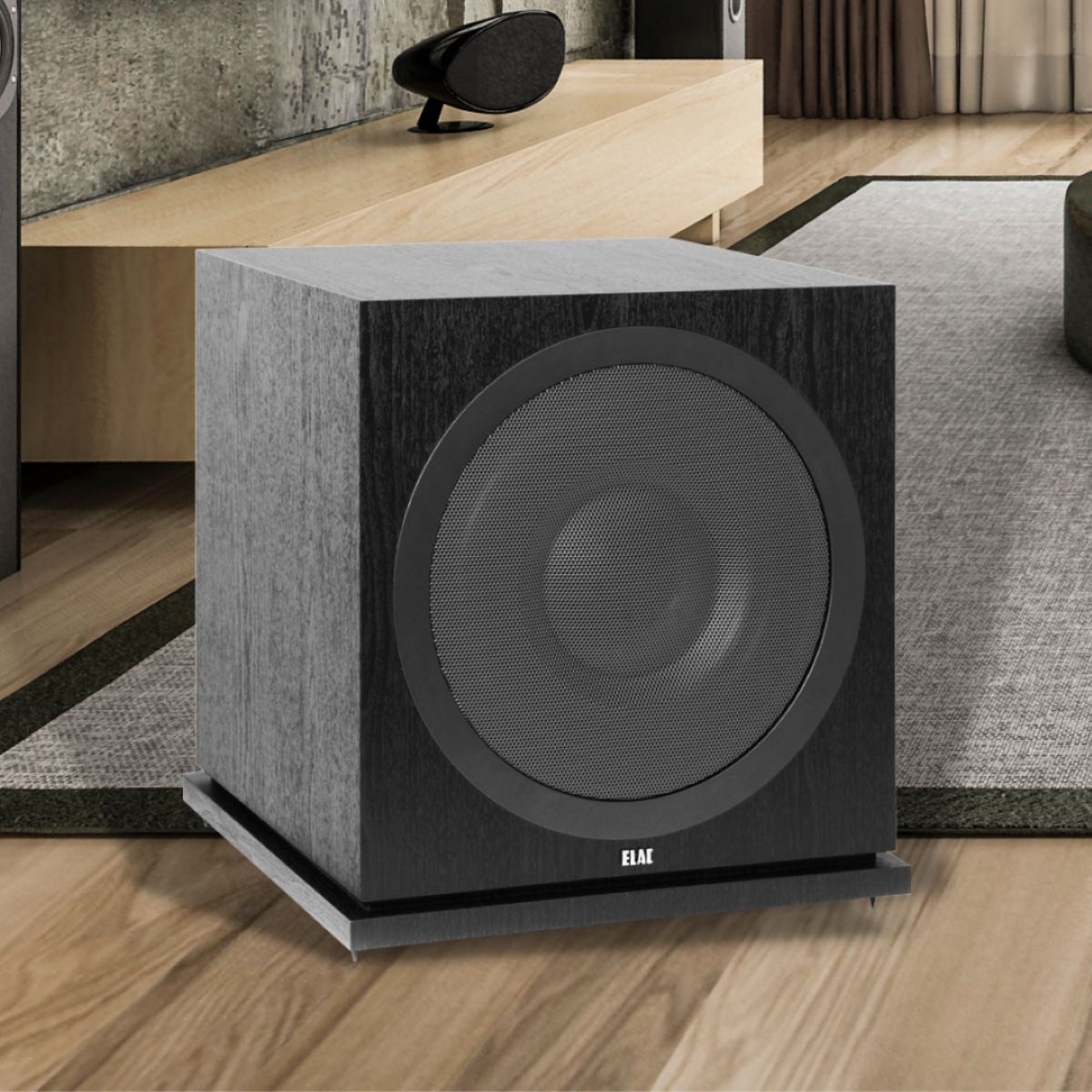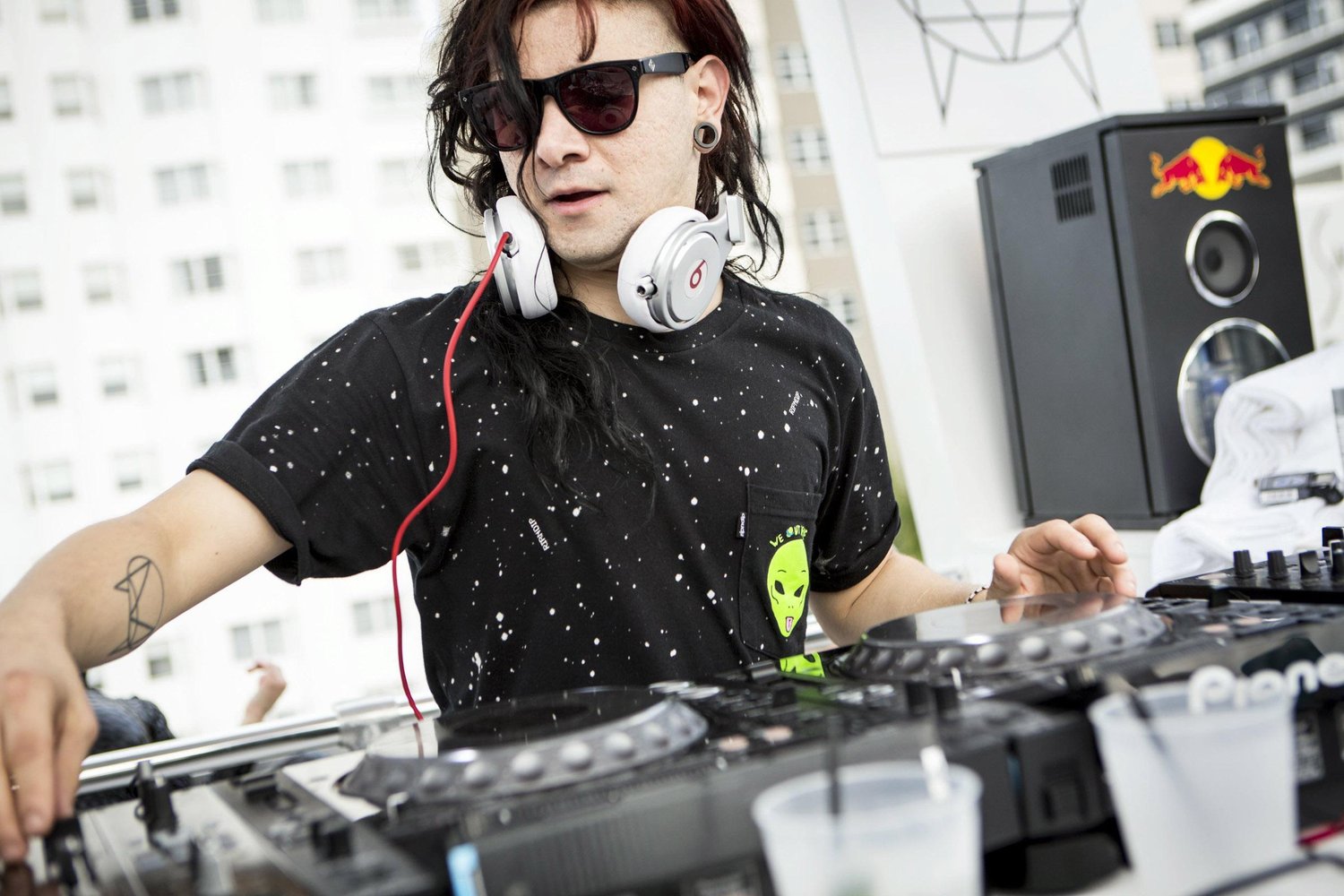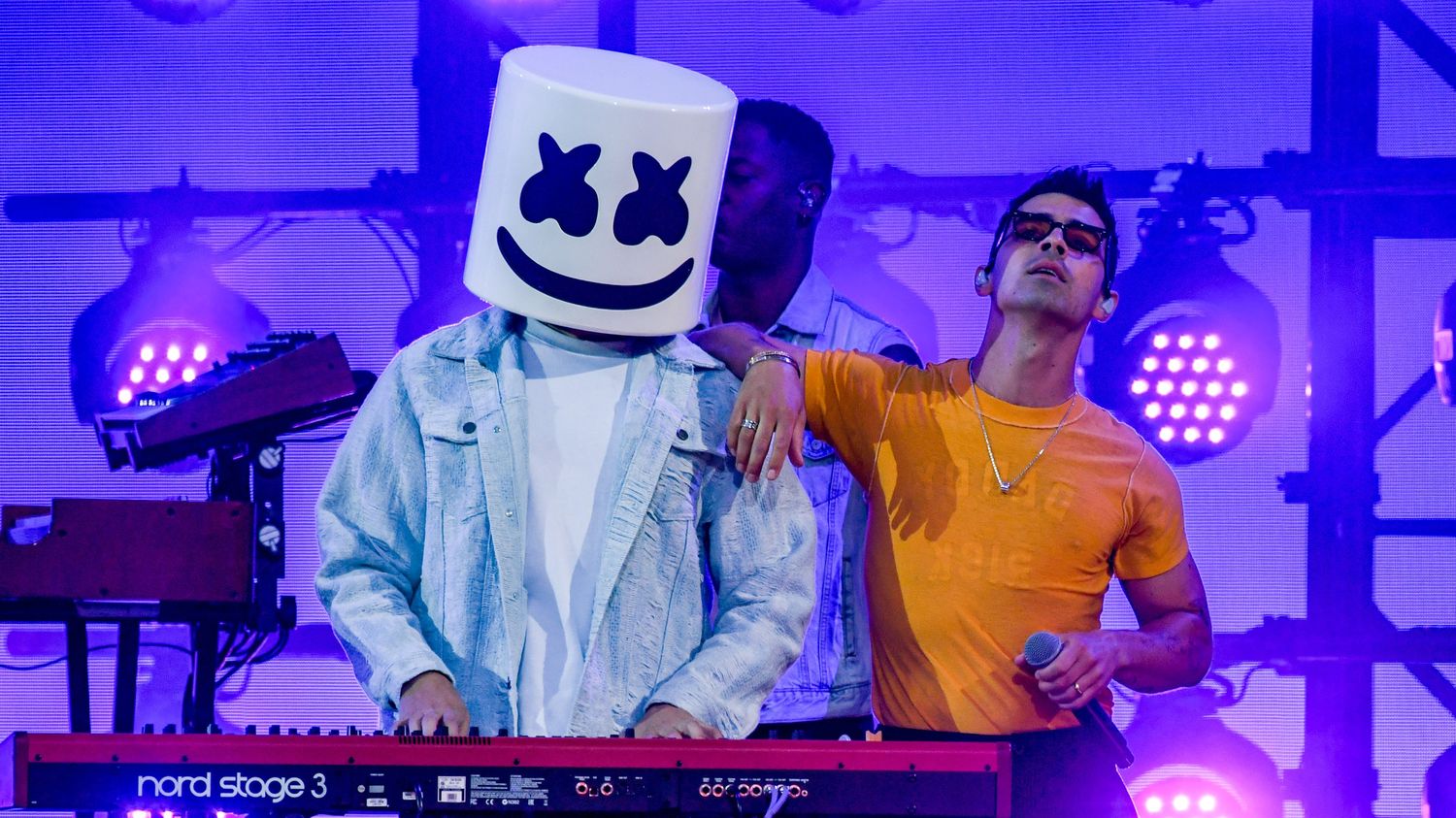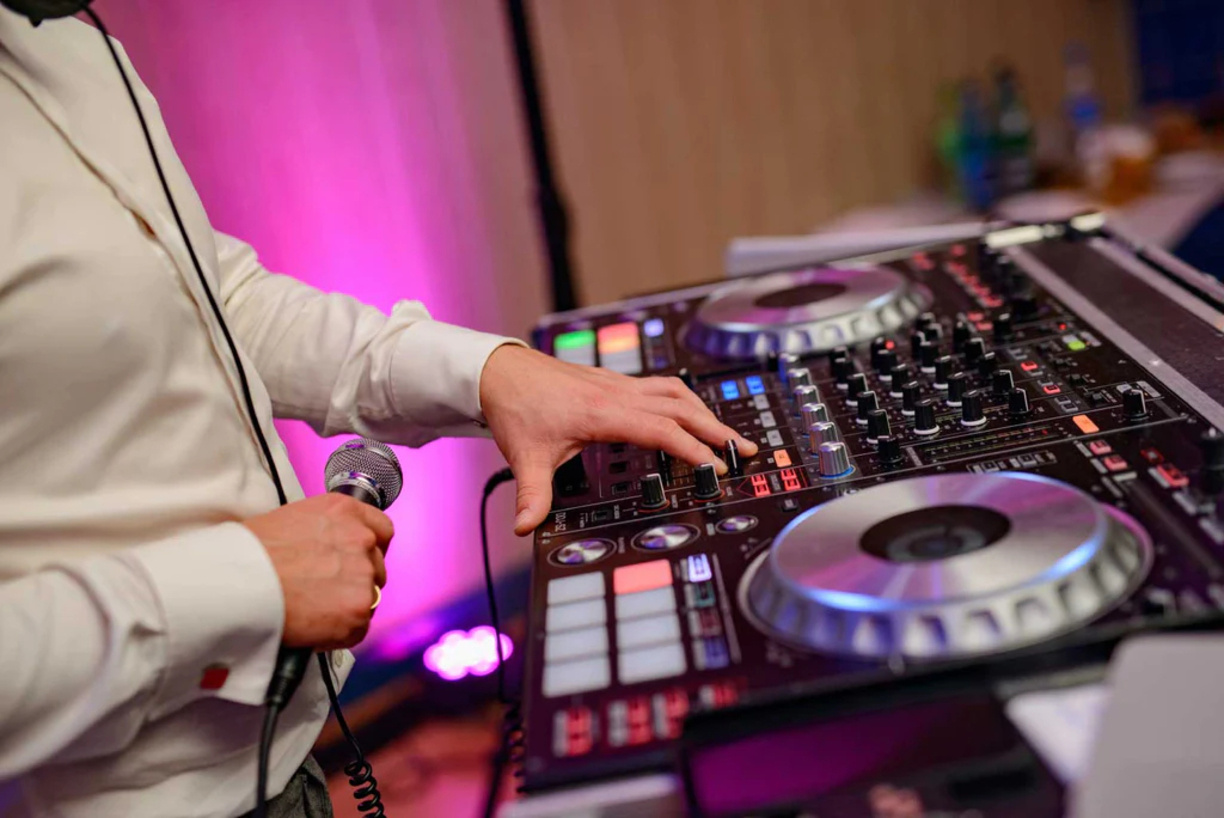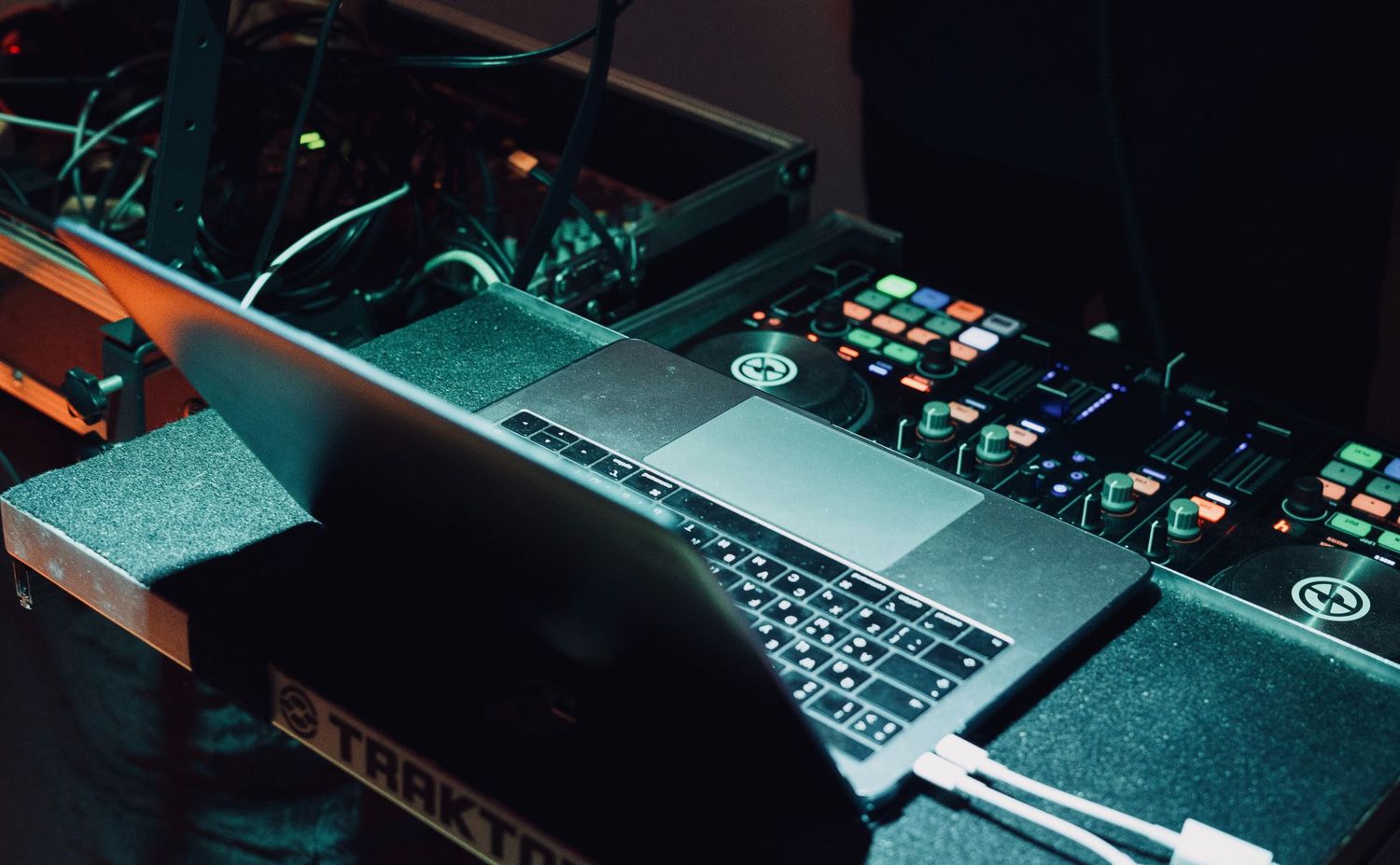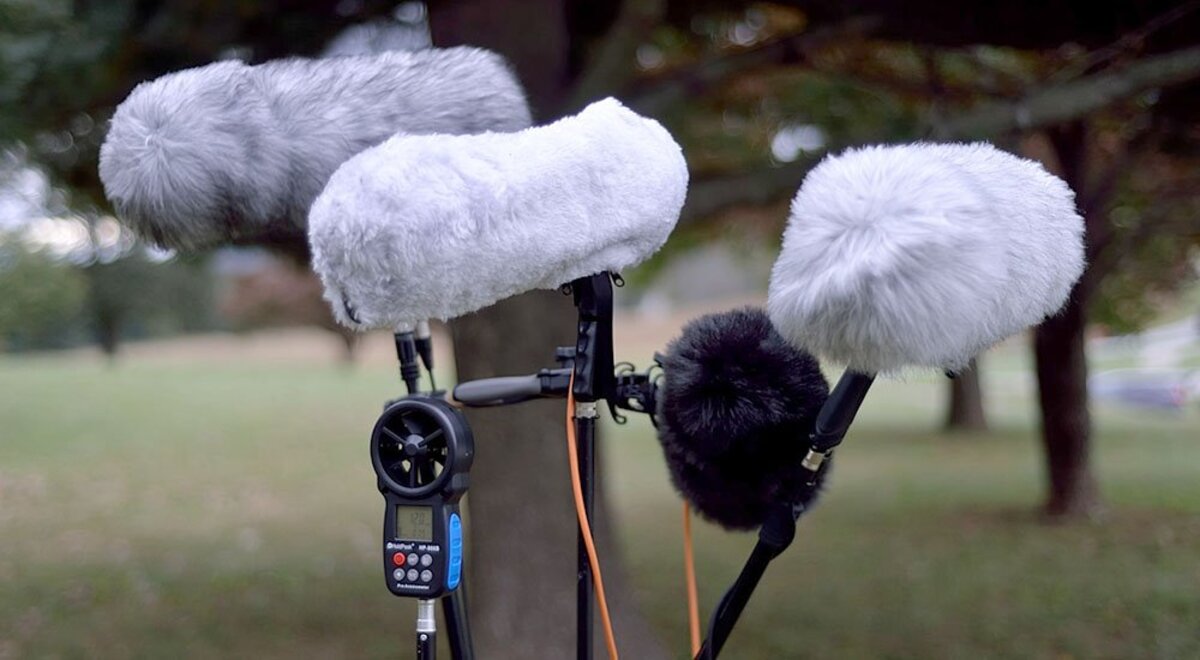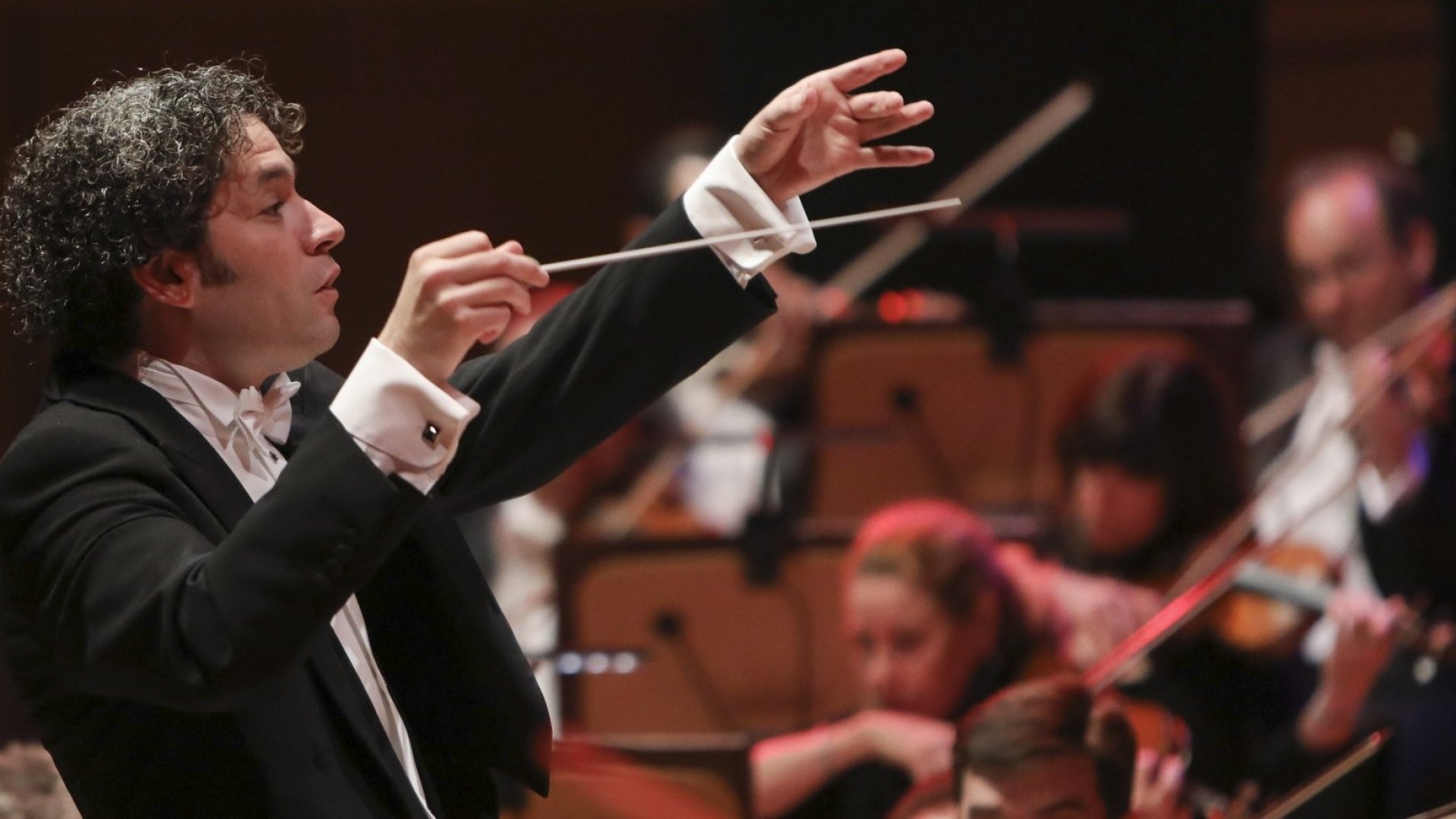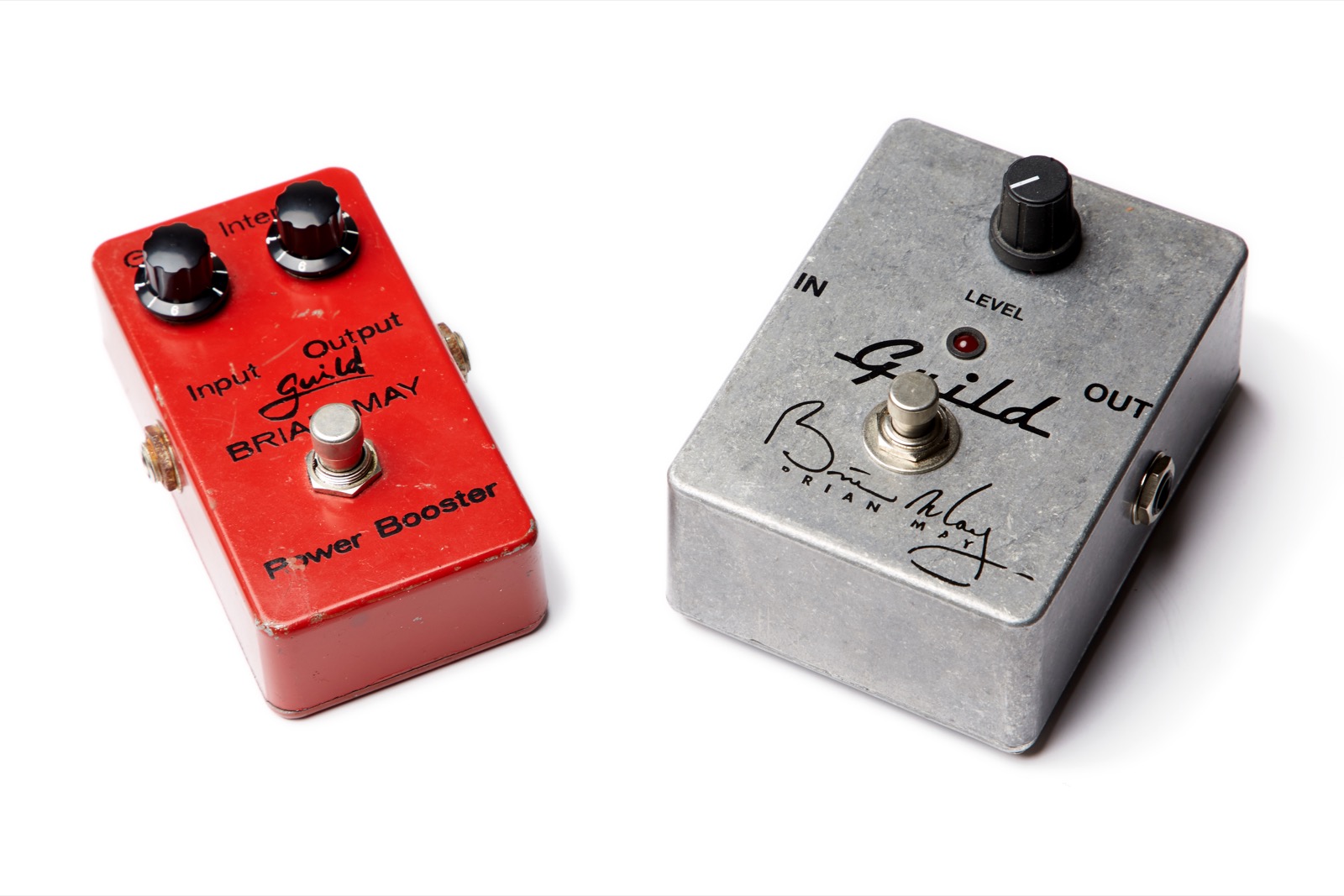Home>Production & Technology>DJ>What Does A DJ Do
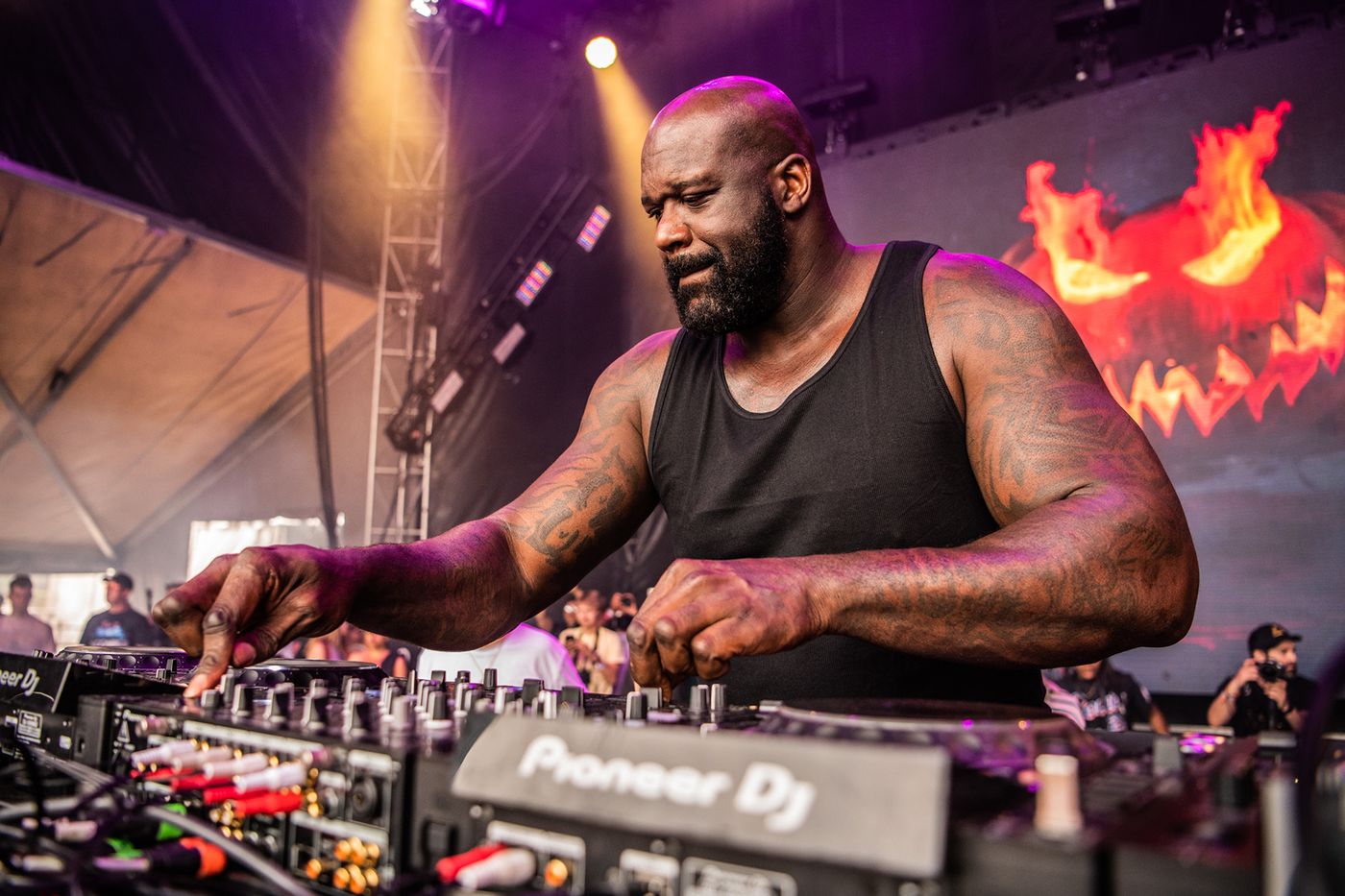

DJ
What Does A DJ Do
Published: March 4, 2024
Discover what a DJ does and the skills needed to excel in this profession. Explore the responsibilities and creativity involved in being a DJ. Learn more about the exciting world of DJing.
(Many of the links in this article redirect to a specific reviewed product. Your purchase of these products through affiliate links helps to generate commission for AudioLover.com, at no extra cost. Learn more)
Table of Contents
Introduction
The world of music is a vibrant and dynamic realm that captivates people of all ages and backgrounds. At the heart of this pulsating industry lies the enigmatic figure known as a DJ. These individuals possess an unparalleled ability to orchestrate seamless transitions between tracks, creating an electrifying atmosphere that enthralls audiences worldwide. As we delve into the captivating realm of DJing, we will uncover the multifaceted role of these musical maestros and gain insight into the remarkable skills and technology that propel their craft to new heights.
The role of a DJ extends far beyond simply playing music; it encompasses the art of curating an immersive sonic experience that resonates with diverse audiences. From igniting dance floors with pulsating beats to setting the mood at exclusive events, DJs wield the power to elevate any occasion with their expertly curated playlists and seamless mixing prowess. As we embark on this exploration of the DJ universe, we will unravel the intricacies of their craft and gain a deeper appreciation for the profound impact they have on the music industry and beyond.
The allure of DJing lies in its ability to transcend cultural and linguistic barriers, uniting people through the universal language of music. Whether it's a high-energy nightclub set or a sophisticated corporate event, DJs possess the innate ability to read the room and tailor their musical selections to captivate and mesmerize their audience. Their intuitive understanding of rhythm, tempo, and musical trends enables them to craft unforgettable sonic journeys that leave a lasting impression on all who partake in their sonic tapestries.
As we venture further into the realm of DJing, we will unravel the intricacies of this captivating art form, shedding light on the diverse skills, responsibilities, and equipment that define the modern DJ. Join us on this exhilarating exploration as we uncover the magic behind the turntables and delve into the pulsating world of DJing.
What is a DJ?
A DJ, short for disc jockey, is a skilled musical curator who possesses the unique ability to blend, mix, and manipulate recorded music to create a seamless and captivating auditory experience. At the core of their craft lies the art of selecting and playing music for a live audience, whether in a club, at a concert, or during a private event. DJs are adept at reading the energy of the crowd and tailoring their musical selections to create an electrifying atmosphere that resonates with diverse audiences.
In addition to their expertise in blending tracks, DJs often serve as emcees, guiding the audience through the sonic journey with their charismatic presence and adept use of the microphone. Their role extends beyond simply playing music; they are masters of ceremony, orchestrating the ebb and flow of energy throughout an event with their carefully curated playlists and seamless transitions.
DJs are not only adept at mixing music but also possess a deep understanding of musical genres, trends, and the technical aspects of sound production. They are constantly attuned to the latest releases, remixes, and musical innovations, ensuring that their sets remain fresh, relevant, and captivating. Furthermore, DJs often collaborate with music producers and artists, adding their unique touch to remixes and original tracks, thereby contributing to the evolution of musical genres and styles.
The impact of a skilled DJ extends far beyond the confines of a dance floor or event venue. Their ability to captivate and unite audiences through the universal language of music makes them indispensable cultural ambassadors. Whether igniting a festival stage with pulsating beats or setting the mood at an upscale soirée, DJs possess the innate ability to craft unforgettable sonic experiences that transcend linguistic and cultural barriers.
In essence, a DJ is a musical virtuoso, seamlessly blending artistry, technical skill, and an intuitive understanding of audience dynamics to create immersive and unforgettable sonic landscapes. Their ability to capture the essence of a moment through music elevates them to the status of cultural tastemakers, shaping the musical zeitgeist and leaving an indelible mark on the collective consciousness of their audience.
Responsibilities of a DJ
As the maestros of musical ambiance, DJs bear a multitude of responsibilities that extend far beyond the realm of simply playing tracks. Their role encompasses the intricate art of setting the mood, guiding the energy of the audience, and creating an immersive sonic journey that resonates with diverse listeners. At the heart of their responsibilities lies the ability to read the room, understand the pulse of the crowd, and tailor their musical selections to captivate and mesmerize their audience.
One of the primary responsibilities of a DJ is to curate a diverse and engaging playlist that caters to the unique preferences of the audience. This entails a deep understanding of musical genres, trends, and the ability to seamlessly blend tracks to maintain a captivating flow throughout their set. Whether it's a high-energy dance set or a sophisticated lounge ambiance, DJs possess the innate ability to craft sonic landscapes that evoke emotion and ignite the senses.
In addition to their musical prowess, DJs often serve as emcees, using their charismatic presence and adept use of the microphone to engage and interact with the audience. Their ability to seamlessly transition between tracks while maintaining a vibrant and energetic atmosphere is a testament to their skill in orchestrating the ebb and flow of energy throughout an event.
Furthermore, DJs are entrusted with the technical aspects of sound production, ensuring that the audio quality is pristine and that the equipment is seamlessly integrated into the overall event setup. Their expertise in utilizing cutting-edge technology, sound systems, and lighting enhances the overall sensory experience, elevating the event to new heights of auditory and visual splendor.
Moreover, DJs are adept at adapting to the unique ambiance and energy of different venues and events, whether it's a pulsating nightclub, a sophisticated gala, or an outdoor festival. Their ability to intuitively gauge the mood of the audience and adjust their musical selections accordingly is a testament to their versatility and adaptability.
In essence, the responsibilities of a DJ encompass a harmonious blend of musical expertise, crowd interaction, technical proficiency, and adaptability. Their ability to create an unforgettable sonic experience while seamlessly navigating the diverse dynamics of live events solidifies their pivotal role as cultural architects, shaping the musical landscape and leaving an indelible impression on all who partake in their auditory odysseys.
Skills required to be a DJ
Becoming a proficient DJ entails mastering a diverse array of skills that extend far beyond the realm of music selection and mixing. A successful DJ possesses a unique blend of technical expertise, creative intuition, and an innate understanding of audience dynamics. These skills collectively form the foundation upon which the art of DJing is built, enabling DJs to craft captivating sonic experiences that resonate with diverse audiences.
-
Musical Knowledge: A deep understanding of musical genres, trends, and the ability to curate diverse playlists is essential for a DJ. They must possess an extensive knowledge of music history, styles, and the ability to seamlessly blend tracks, ensuring a captivating and cohesive sonic journey.
-
Technical Proficiency: DJs must be adept at utilizing a wide range of equipment and software, including turntables, mixers, controllers, and digital audio workstations. Proficiency in beatmatching, cueing, and utilizing effects is crucial for creating seamless transitions and captivating mixes.
-
Crowd Reading: The ability to read the energy of the crowd and adapt musical selections accordingly is a hallmark skill of a skilled DJ. They must possess an intuitive understanding of audience dynamics, adjusting the tempo, and genre of music to maintain a vibrant and engaging atmosphere.
-
Emceeing: DJs often serve as emcees, using their charismatic presence and adept use of the microphone to engage and interact with the audience. Effective communication and crowd interaction skills are essential for guiding the audience through the sonic journey and maintaining a lively atmosphere.
-
Adaptability: The capacity to adapt to diverse venues, events, and audience preferences is a crucial skill for DJs. They must be versatile in their musical repertoire and adaptable in their approach, ensuring that their sets resonate with a wide range of listeners.
-
Creativity: A DJ's ability to infuse creativity into their mixes, remixes, and live performances sets them apart. They must possess a keen sense of musical innovation, incorporating unique elements into their sets to captivate and enthrall their audience.
-
Networking: Building and maintaining connections within the music industry is vital for a DJ's success. Networking skills enable DJs to collaborate with artists, producers, and event organizers, expanding their opportunities and influence within the music community.
In essence, the skills required to be a DJ encompass a harmonious blend of musical expertise, technical proficiency, crowd interaction, adaptability, creativity, and networking acumen. Mastering these skills empowers DJs to create immersive and unforgettable sonic experiences, solidifying their role as cultural tastemakers and musical architects within the global music landscape.
Types of DJs
DJs are a diverse and multifaceted group, each bringing their unique style, expertise, and musical preferences to the forefront of the industry. The world of DJing encompasses a rich tapestry of specialized roles, each catering to distinct musical genres, event types, and audience preferences. Understanding the various types of DJs provides insight into the breadth and depth of the DJing profession, shedding light on the specialized skills and expertise that define each category.
-
Club DJs: Club DJs are the heartbeat of nightlife, commanding dance floors with their pulsating beats and seamless mixes. They specialize in curating high-energy sets designed to electrify audiences and keep the energy levels soaring throughout the night. Their expertise lies in reading the crowd, seamlessly blending tracks, and creating an immersive sonic experience that resonates with clubgoers.
-
Radio DJs: Radio DJs play a pivotal role in shaping musical trends and introducing listeners to new tracks and artists. Their expertise lies in engaging audiences through captivating commentary, interviews, and, of course, a carefully curated selection of music. Radio DJs often specialize in specific genres, catering to diverse listener demographics and creating a sense of community through the airwaves.
-
Mobile DJs: Mobile DJs bring the party to diverse events and venues, including weddings, corporate functions, and private celebrations. Their versatility and adaptability enable them to cater to a wide range of musical preferences, ensuring that their sets align with the unique ambiance and energy of each event. Mobile DJs excel in reading the room, engaging diverse audiences, and creating memorable sonic landscapes tailored to each occasion.
-
Turntablists: Turntablists are revered for their mastery of the turntable as a musical instrument, showcasing technical prowess and creativity through scratching, beat juggling, and intricate manipulation of vinyl records. Their performances often transcend traditional DJ sets, incorporating elements of live musical improvisation and pushing the boundaries of sonic innovation.
-
Producer DJs: Producer DJs seamlessly blend the roles of music producers and DJs, infusing their sets with original tracks, remixes, and live production elements. Their expertise in music production enables them to create unique sonic experiences, blurring the lines between DJing and live performance. Producer DJs often collaborate with artists, incorporate live instrumentation, and showcase their original compositions during their sets.
-
Festival DJs: Festival DJs command massive stages and captivate audiences at music festivals, delivering high-octane sets that span diverse genres and musical styles. Their expertise lies in curating expansive and dynamic sets that resonate with festival-goers, creating an electrifying atmosphere that unites audiences in a collective celebration of music and culture.
In essence, the diverse landscape of DJing encompasses a rich tapestry of specialized roles, each contributing to the vibrant mosaic of the music industry. Understanding the unique expertise and characteristics of each type of DJ provides a deeper appreciation for the multifaceted nature of the profession, highlighting the diverse skills and talents that collectively shape the art of DJing.
DJ equipment and technology
The art of DJing is intricately intertwined with cutting-edge equipment and technology, empowering DJs to craft seamless and captivating sonic experiences. From the iconic turntables of yesteryear to the advanced digital tools of the modern era, the evolution of DJ equipment has revolutionized the art form, expanding the creative possibilities and enhancing the overall auditory journey for both DJs and their audiences.
Turntables and Mixers
Historically synonymous with DJing, turntables have been a cornerstone of the craft, enabling DJs to manipulate vinyl records with precision and finesse. The tactile feel of vinyl and the art of beatmatching on turntables have long defined the quintessential DJ experience. In parallel, mixers serve as the central hub for blending and transitioning between tracks, offering a myriad of controls for adjusting tempo, EQ, and effects. The seamless integration of turntables and mixers forms the bedrock of traditional DJ setups, fostering a tactile and immersive approach to mixing music.
Controllers and Digital Interfaces
The digital revolution has ushered in a new era of DJing, marked by the advent of controllers and digital interfaces that harness the power of software-based mixing and performance. These compact and versatile devices interface with DJ software, offering a wealth of features including touch-sensitive platters, performance pads, and integrated effects. DJs can manipulate digital audio files with precision, cueing, looping, and remixing tracks on the fly, expanding their creative palette and blurring the lines between traditional and digital DJing.
Media Players and CDJs
Media players and CDJs represent the convergence of digital technology with the tactile feel of physical media, providing a familiar interface for DJs transitioning from vinyl to digital formats. These devices enable DJs to seamlessly navigate digital music libraries, cue and manipulate audio files, and integrate advanced performance features such as hot cues, beat sync, and waveform displays. The marriage of tactile controls with digital precision empowers DJs to deliver dynamic and engaging performances while bridging the gap between analog and digital DJing.
Software and Production Tools
In the realm of DJ software, a myriad of powerful tools and platforms have emerged, offering DJs unprecedented flexibility and control over their performances. These software solutions provide intuitive interfaces for organizing music libraries, crafting seamless mixes, and integrating live production elements. Additionally, production tools such as digital audio workstations (DAWs) enable DJ-producers to create original tracks, remixes, and live edits, blurring the lines between DJing and music production.
Advanced Sound Systems and Lighting
Beyond the realm of DJ-specific equipment, the integration of advanced sound systems and lighting technologies enhances the overall sensory experience of DJ performances. High-fidelity sound systems deliver pristine audio quality, enveloping audiences in a sonic tapestry that transcends traditional expectations. Furthermore, cutting-edge lighting technologies, including LED fixtures and visual effects, synchronize with the music, creating a mesmerizing visual accompaniment that amplifies the immersive nature of DJ sets.
In essence, the symbiotic relationship between DJ equipment and technology has redefined the art of DJing, empowering DJs to push the boundaries of creativity and sonic innovation. From the tactile artistry of turntables to the boundless possibilities of digital interfaces, the evolution of DJ equipment continues to shape the landscape of modern music performance, ensuring that DJs remain at the forefront of sonic exploration and artistic expression.
How to become a DJ
Becoming a DJ is a journey that blends passion, dedication, and a relentless pursuit of musical mastery. For aspiring individuals captivated by the art of DJing, embarking on this transformative path requires a harmonious fusion of skill development, industry insight, and unwavering commitment to the craft. Here are the essential steps to embark on the exhilarating journey of becoming a DJ:
1. Cultivate a Deep Musical Understanding
Begin by immersing yourself in diverse musical genres, studying the evolution of electronic music, and understanding the intricacies of rhythm, melody, and harmony. Expand your musical knowledge by exploring various styles, from house and techno to hip-hop and beyond, gaining a comprehensive understanding of the sonic tapestry that defines contemporary DJ culture.
2. Master Essential DJ Skills
Acquire proficiency in beatmatching, mixing, and blending tracks seamlessly. Familiarize yourself with DJ equipment, including turntables, mixers, controllers, and digital interfaces. Develop a keen ear for selecting tracks that resonate with diverse audiences, and hone your ability to read the energy of a crowd, adjusting your musical selections to create captivating sonic journeys.
3. Embrace Technological Innovation
Stay abreast of the latest advancements in DJ software, production tools, and performance technologies. Experiment with digital audio workstations (DAWs) to craft remixes, original tracks, and live edits, infusing your sets with a unique creative flair. Embrace the fusion of analog and digital technologies, harnessing their combined power to elevate your performances to new heights.
4. Network and Collaborate
Forge connections within the music industry, collaborating with artists, producers, and event organizers to expand your opportunities and influence. Seek mentorship from established DJs, learning from their experiences and gaining valuable insights into the nuances of the profession. Embrace the spirit of collaboration, as it often opens doors to new opportunities and creative partnerships.
5. Build a Unique Brand and Identity
Develop a distinct artistic identity that sets you apart in the competitive landscape of DJing. Curate a signature sound that reflects your musical vision and resonates with audiences. Leverage social media and digital platforms to showcase your performances, original productions, and engage with a global audience, cultivating a loyal following drawn to your unique sonic aesthetic.
6. Embrace Live Performance Opportunities
Seek opportunities to perform live at clubs, events, and festivals, honing your stage presence and refining your ability to engage and captivate audiences. Embrace the challenges and rewards of live performance, using each opportunity to refine your craft and solidify your presence as a dynamic and captivating DJ.
7. Continual Growth and Adaptation
Embrace a mindset of continual growth and adaptation, remaining receptive to new musical trends, technologies, and industry developments. Stay open to evolving your artistic expression, pushing the boundaries of sonic innovation, and remaining at the forefront of the ever-evolving landscape of DJ culture.
By following these essential steps, aspiring DJs can embark on a transformative journey that leads to musical mastery, artistic expression, and a profound impact on the global music landscape. The path to becoming a DJ is marked by dedication, creativity, and an unwavering commitment to the art of sonic storytelling.
Conclusion
In conclusion, the world of DJing is a captivating tapestry of musical artistry, technical innovation, and immersive sonic experiences. From the pulsating energy of club sets to the sophisticated ambiance of private events, DJs wield the power to captivate and unite audiences through the universal language of music. Their multifaceted role as musical curators, emcees, and cultural tastemakers underscores their profound impact on the global music landscape.
The art of DJing encompasses a rich tapestry of specialized roles, each catering to distinct musical genres, event types, and audience preferences. Whether commanding dance floors as club DJs, shaping musical trends as radio DJs, or crafting dynamic sonic landscapes as festival DJs, each category of DJs contributes to the vibrant mosaic of the music industry. Understanding the unique expertise and characteristics of each type of DJ provides a deeper appreciation for the multifaceted nature of the profession, highlighting the diverse skills and talents that collectively shape the art of DJing.
Furthermore, the evolution of DJ equipment and technology has redefined the art of DJing, empowering DJs to push the boundaries of creativity and sonic innovation. From the tactile artistry of turntables to the boundless possibilities of digital interfaces, the symbiotic relationship between DJ equipment and technology ensures that DJs remain at the forefront of sonic exploration and artistic expression. The integration of advanced sound systems and lighting technologies enhances the overall sensory experience of DJ performances, enveloping audiences in a sonic and visual tapestry that transcends traditional expectations.
For aspiring individuals captivated by the art of DJing, the journey to becoming a DJ is marked by passion, dedication, and a relentless pursuit of musical mastery. By cultivating a deep musical understanding, mastering essential DJ skills, embracing technological innovation, networking and collaborating, building a unique brand and identity, embracing live performance opportunities, and continually seeking growth and adaptation, aspiring DJs can embark on a transformative journey that leads to musical mastery and a profound impact on the global music landscape.
In essence, the art of DJing transcends the confines of musical performance, serving as a conduit for cultural expression, sonic innovation, and collective celebration. DJs stand as cultural ambassadors, uniting diverse audiences through the universal language of music and leaving an indelible mark on the collective consciousness of their listeners. As the heartbeat of nightlife, the pulse of festivals, and the architects of sonic journeys, DJs continue to shape the musical zeitgeist, ensuring that the art of DJing remains a vibrant and indispensable force within the global music community.

